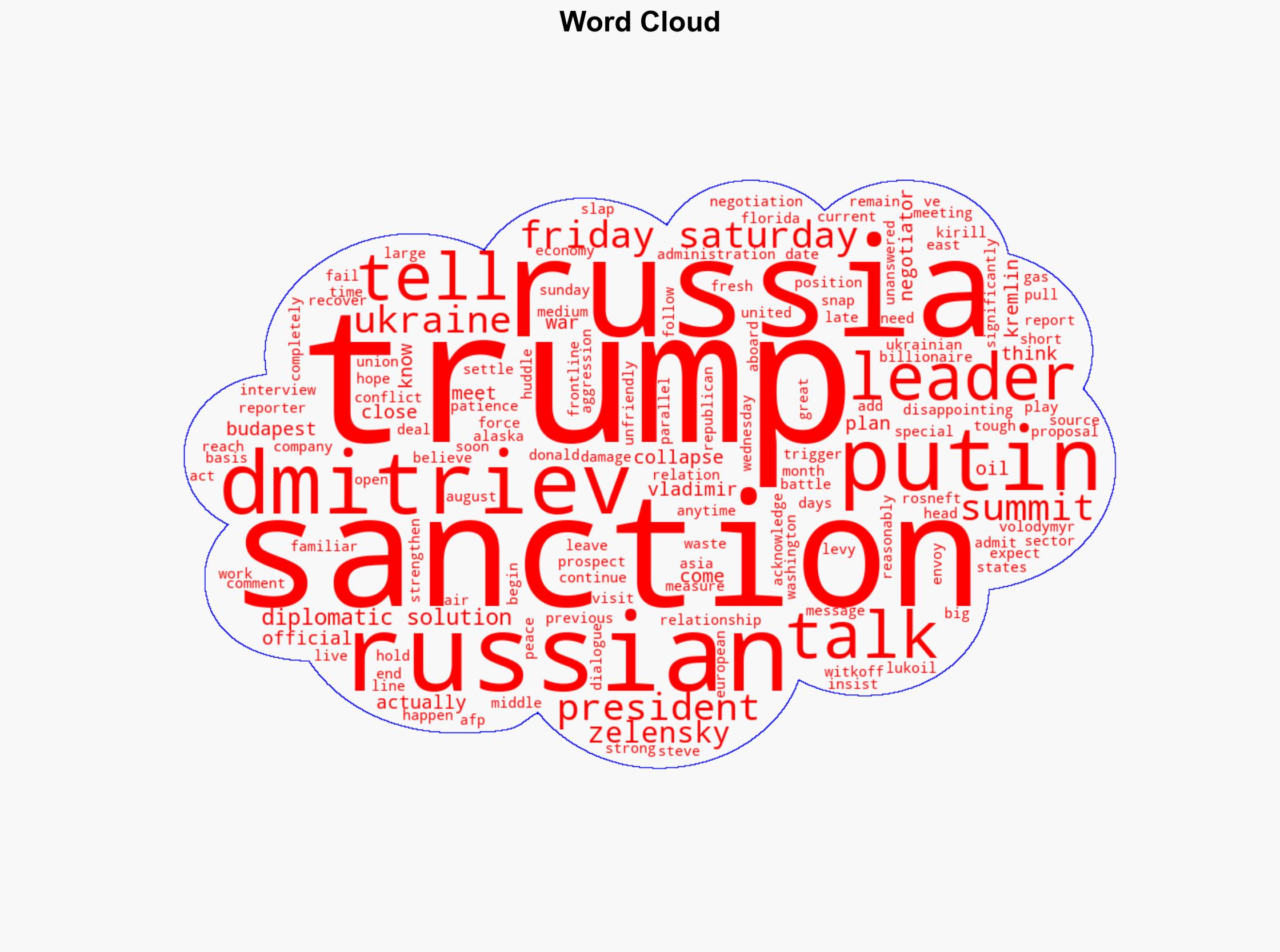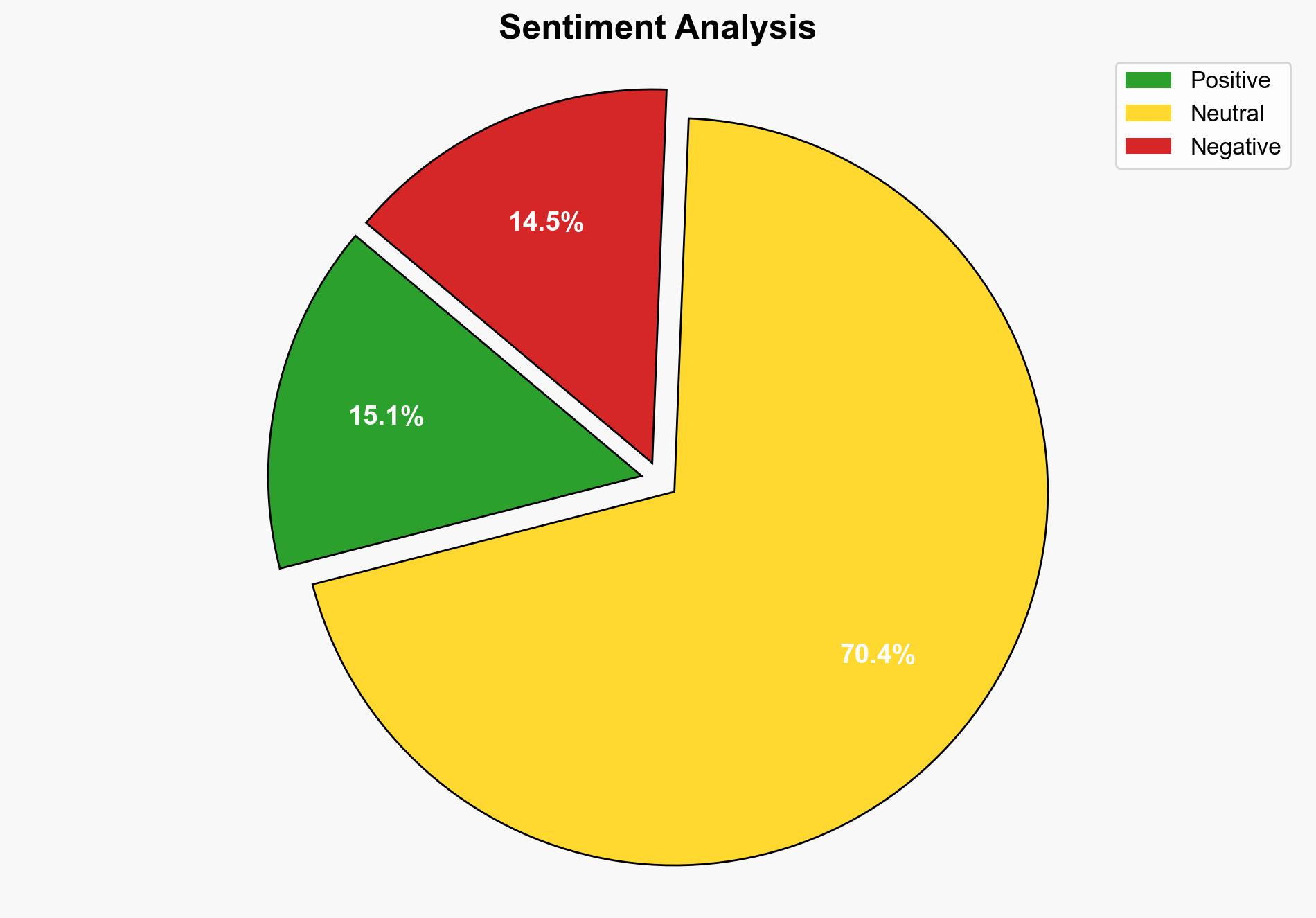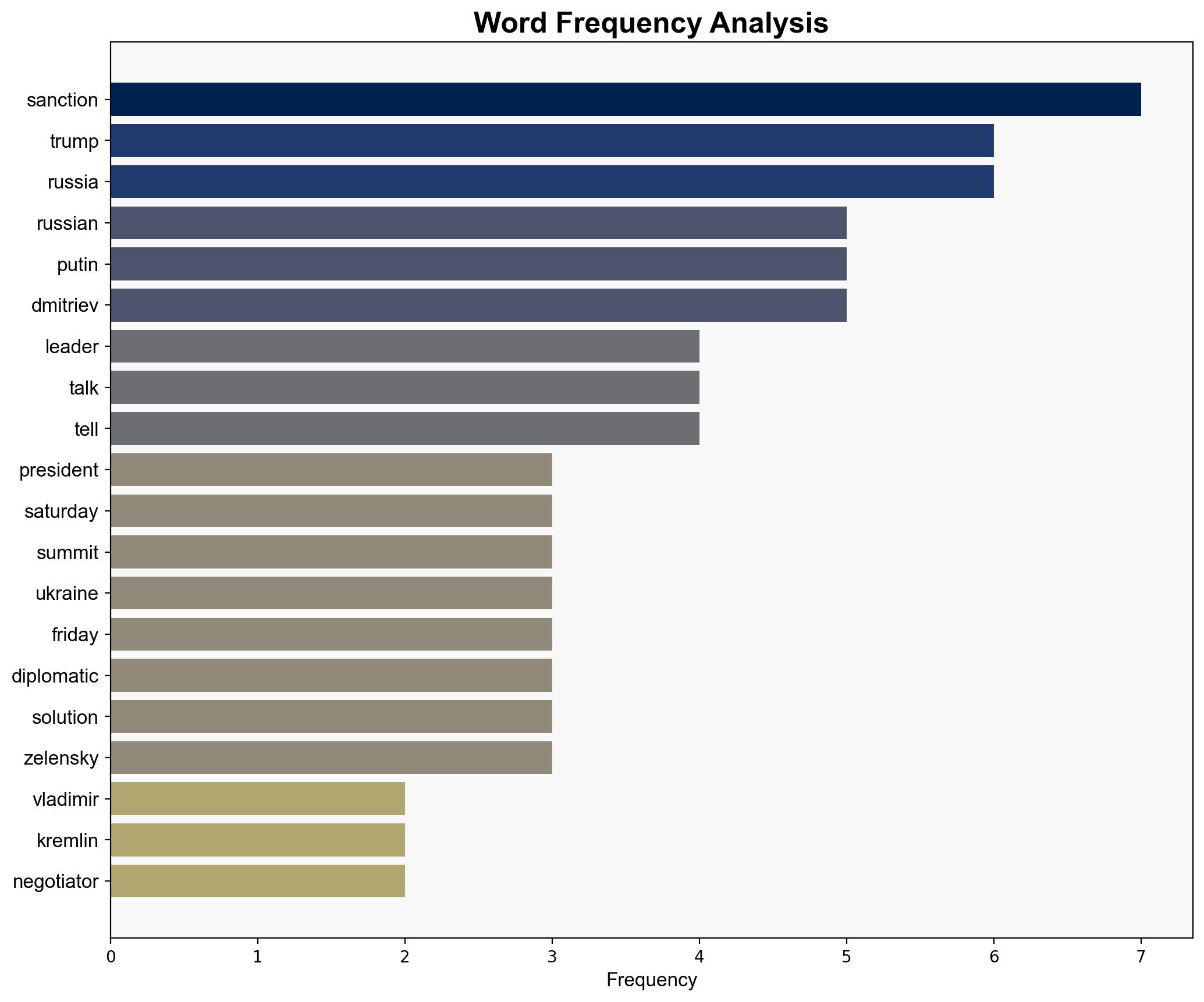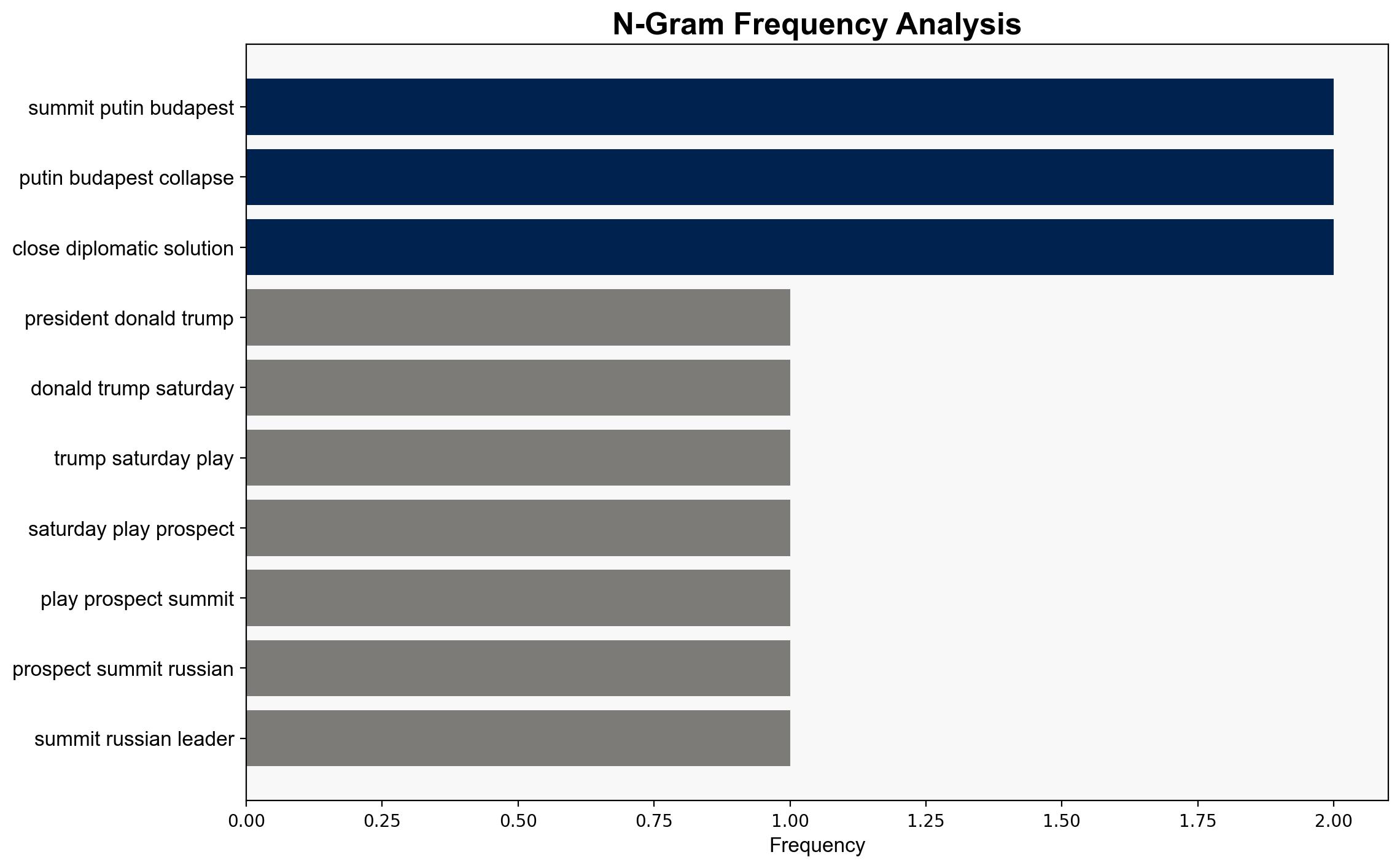Trump not ‘wasting time’ with Putin as Kremlin envoy visits US – CNA
Published on: 2025-10-26
Intelligence Report: Trump not ‘wasting time’ with Putin as Kremlin envoy visits US – CNA
1. BLUF (Bottom Line Up Front)
The analysis suggests a moderate confidence level that the United States and Russia are exploring diplomatic avenues to resolve the Ukraine conflict, despite public statements suggesting otherwise. The most supported hypothesis is that ongoing backchannel negotiations are occurring, with strategic recommendations to monitor these developments closely while preparing for potential shifts in U.S.-Russia relations.
2. Competing Hypotheses
1. **Hypothesis A**: The U.S. and Russia are actively pursuing a diplomatic resolution to the Ukraine conflict through backchannel negotiations, despite public posturing.
2. **Hypothesis B**: The U.S. is maintaining a hardline stance against Russia, with no substantive progress towards resolving the Ukraine conflict, and the meetings are primarily symbolic or for domestic political consumption.
Using Analysis of Competing Hypotheses (ACH), Hypothesis A is better supported due to the presence of ongoing meetings between U.S. and Russian officials, and statements indicating proximity to a diplomatic solution. Hypothesis B is weakened by the lack of evidence supporting a complete breakdown in communication or negotiation efforts.
3. Key Assumptions and Red Flags
– **Assumptions**: It is assumed that both parties are genuinely interested in resolving the conflict and that public statements are not entirely reflective of private negotiations.
– **Red Flags**: The timing of sanctions and meetings could indicate a strategic deception or misdirection. The lack of transparency in the meetings raises questions about their true nature and objectives.
– **Blind Spots**: Potential influence of other geopolitical actors, such as the European Union, is not fully considered in the available intelligence.
4. Implications and Strategic Risks
– **Geopolitical Risks**: Failure to reach a diplomatic solution could escalate tensions, potentially leading to increased sanctions or military posturing.
– **Economic Risks**: Prolonged conflict and sanctions could further destabilize global oil markets, impacting economies reliant on Russian energy exports.
– **Cyber and Psychological Risks**: Increased cyber operations or propaganda campaigns could be employed by either side to sway public opinion or disrupt negotiations.
5. Recommendations and Outlook
- Monitor diplomatic channels and backchannel communications for signs of progress or breakdowns in negotiations.
- Prepare contingency plans for potential escalation scenarios, including increased sanctions or military actions.
- Engage with European allies to coordinate responses and ensure a unified approach to the conflict.
- Scenario Projections:
- Best Case: Successful diplomatic resolution leading to de-escalation and lifting of sanctions.
- Worst Case: Breakdown in negotiations resulting in heightened military conflict and economic sanctions.
- Most Likely: Continued negotiations with intermittent progress, maintaining current levels of tension.
6. Key Individuals and Entities
– Donald Trump
– Vladimir Putin
– Kirill Dmitriev
– Volodymyr Zelensky
– Steve Witkoff
– Rosneft
– Lukoil
7. Thematic Tags
national security threats, geopolitical strategy, diplomatic negotiations, U.S.-Russia relations




